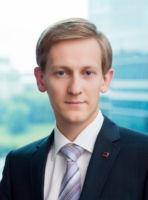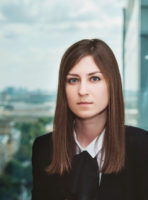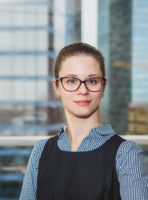Patents and Trademarks
Lidings / Russia
All about patents and trademarks in Russia. Prepared in association with Lidings, a leading global law firm, this is an extract from The Pharma Legal Handbook: Russia, available to purchase here for GBP 99.
1. What are the basic requirements to obtain patent and trademark protection?
PATENTS
The Russian law provides protection for registered inventions, utility models and industrial designs. Pharmaceutical substance is generally protected as an invention. An invention is a technical solution in any field related to a product (inter alia, to a device, substance, microbial strain, or cell culture of plants and animals) or a method/process.
Patent protection can be granted to a product or a method if it is novel over the prior art, has the necessary degree of inventiveness, and is industrially applicable. The prior art includes any information known to the public in the world before the priority date.
TRADEMARKS
Trademarks identify goods and services of Russian and foreign legal entities or entrepreneurs. Russian law does not recognize prior use trademarks. Russia grants protection only for registered trademarks within the territory of Russia, including under the Madrid Treaty and Protocol Relating to the Madrid Treaty.
Any protectable word, design, symbol, etc. could be registered as a trademark if it is distinctive and enjoys priority right before other similar designations. The list of signs and symbols for registration is open, which allows the trademark holder to apply for non-traditional marks.
2. What agencies or bodies regulate patents and trademarks?
Patents and trademarks are regulated by Federal Service for Intellectual Property (the “Rospatent”). Patents can be registered under Patent Cooperation Treaty and Eurasian Patent Convention. Eurasian Patents are granted by the Eurasian Patent Office (EAPO) located in Moscow.
3. What products, substances, and processes can be protected by patents or trademarks and what types cannot be protected?
PATENTS
Patent for invention may be granted for products, for instance, individual chemical compounds and composition (i.e. pharmaceutical), microorganism strains, cell culture of plants or animals, and processes inventions and methods for treatment, both with medicines and medical procedures.
The following objects shall not be protected as invention due to ethical reasons:
(1) human cloning technologies; (2) technologies for modifying the genetic integrity of human embryo cells; (3) use of human embryos for industrial and commercial purposes; (4) other solutions inconsistent with public interest and moral principles.
The following shall not be patentable:
(1) discoveries; (2) scientific theories and mathematical methods; (3) proposals concerning solely the outward appearance of manufactured articles and intended to satisfy aesthetic requirements; (4) rules and methods of games for intellectual or business activity; (5) computer programs; (6) ideas on presenting information; (7) varieties of plants and animals and biological methods for producing them, except for microbiological methods and products produced by such methods.
There are recent changes to the patent law restricting evergreen patenting. According to the Order of the Russian Ministry of Economic Development dated 31 March 2021 No 155 “On amendments to the Rules for the preparation, submission, and consideration of documents that are the basis for the performance of legally significant actions for the state registration of inventions, and their forms and Requirements for documents of an application for the grant of a patent for an invention, approved by the Russian Ministry of Economic Development dated 25 May 2016 No. 316” (registered on 28 May 2021 No 63664), a form of the known chemical compound, including an isomer, amorphous or crystalline form, or its derivatives (e.g., salt, solvate, ether, etc.) shall not be patented if such a form or a derivative does not exhibit any new unknown properties.
TRADEMARKS
Any sign may be registered as trademarks unless it lacks distinctiveness (absolute ground for refusal), including:
(1) it has fallen into the public domain to indicate the goods of a certain kind; (2) is generally accepted symbol and term; (3) characterizes goods, including an indication of their type, quality, quantity, properties, purpose, etc.; (4) represents the configuration of goods that is determined exclusively or mainly by the properties or purpose of the goods.
The designation shall not be registered if it is false or misleading a consumer in respect of goods or its producer; are contrary to public interests, or to principles of humanity or morality. Designations identical or confusingly similar to a registered geographical indication, or protected designation of origin, or applications for such registration with an earlier priority shall not be registered as trademarks with respect to any goods.
As a relative ground, the designation shall not be registered if it is identical, or confusingly similar to protected trademark and trademark applied for registration with respect to similar goods with an earlier priority.
According to Russian case law, the name of a pharmaceutical substance and international nonproprietary name cannot be registered as a trademark.
4. How can patents and trademarks be revoked?
PATENTS
The patent shall be found invalid fully or in part upon the claim of any interested third party on the following grounds:
- the invention fails to meet the criteria of patentability;
- the documents of an application on the date of filing are inconsistent with the requirement to disclose the essence of the invention;
- the claims of the invention contain features that were missing on the filing date in the description of the invention and in the claims for the invention;
- a patent was granted in respect of several identical inventions, having the same priority date with incompliance to the procedures of the Russian Civil Code;
- a patent was granted with a false indication of its author or patent holder.
TRADEMARKS
Early termination
The trademark may be early terminated in the Intellectually Property Court upon the claim of the interested party due to the non-use within 3 consecutive years before the date of filing the statement of claim.
Under this category of IP disputes, the claimant shall prove his status of an interested party, the respondent has to prove the trademark use for each disputed goods/service apart from cases when the trademark can be deemed as well-known or famous within Russia.
Invalidation
The trademark shall be found invalid fully or in part on the following grounds:
- trademark protection has been granted in contravention of the absolute grounds for refusal (e.g., the trademark was generally accepted symbol and term);
- trademark protection has been granted in contravention of the relative grounds for refusal (e.g., the trademark was identical, or confusingly similar to trademarks applied for registration or protected in Russia with respect to similar goods) within five years from the date of trademark registration;
- a trademark holder lost the status of entrepreneur or a company was liquidated;
- trademark registration is recognized by antitrust authorities as an abuse of rights or an act of unfair competition.
5. Are foreign patents and trademarks recognized and, if so, under what circumstances?
Generally, Russia recognizes only patents and trademarks that are registered in Russia or protected under treaties, that are effective within Russia. A foreign patent or trademark may be recognized in Russia under conventional priority provided they meet certain requirements.
PATENTS
Russia has three patent systems for inventions: national, regional, and international. The regional patent system is based on the Eurasian Patent Convention, which is applied by eight members of the Commonwealth of Independent States. Under Eurasian Patent Convention a patent holder is entitled to obtain a united Eurasian Patent. Moreover, Russia is a signatory member of the Patent Cooperation Treaty which enables foreign companies to adhere to patent protection in Russia.
Any person, who has duly filed the first application for a patent in a member state of the Paris Convention, is entitled to enjoy the priority date of the first application in a subsequent Russian application, filed not later than 12 months after the first application.
TRADEMARKS
Russia provides national and international registration systems of trademarks (the Madrid Treaty and Protocol Relating to the Madrid Treaty).
Any person, who has duly filed the first application for a trademark in a member state of the Paris Convention, is entitled to enjoy the priority date of the first application in a subsequent Russian application, filed not later than 6 months after the first application.
6. Are there any non-patent/trademark barriers to competition to protect medicines or devices?
Under data exclusivity provisions, it is prohibited to obtain, disclose and use the data of preclinical and clinical trials without the holder’s consent for commercial purposes within 6 years after marketing authorization. Furthermore, the law prohibits any circulation of the registered medicines passes over this restriction. An application for generic medicine could be filed with Minzdrav after 4 years from the date of market authorization has been issued in respect of reference medicine.
Courts interpreted the term “the date of the preclinical and clinical trials” too narrowly. The Intellectual Property Court in case No. A40-188378/2014 stipulated that the data exclusivity regime could not be applied to the information published in specialized printed editions and shall cover only those clinical trial data provided to Minzdrav within the registration procedure.
7. Are there restrictions on the types of medicines or devices that can be granted patent and trademark protection?
No, there are no particular restrictions to any types of medicines or devices that can be granted patent and trademark protection except those that were mentioned in Question 3.
8. Must a patent or trademark license agreement with a foreign licensor be approved or accepted by any government or regulatory body?
There is no difference between a license agreement with a foreign licensor or a national one. Pursuant to the Russian Civil Code, any license agreement must be registered with Rospatent provided that the exclusive rights themselves are subject to registration requirements (e.g. patents, trademarks) in Rospatent. The absence of such registration does not entail invalidity of the license agreement, but transfer or granting of the exclusive right is deemed to not have taken place for third parties.



























































